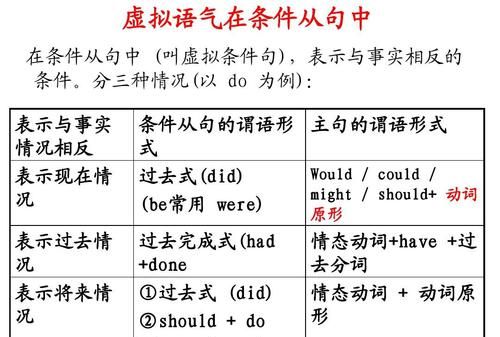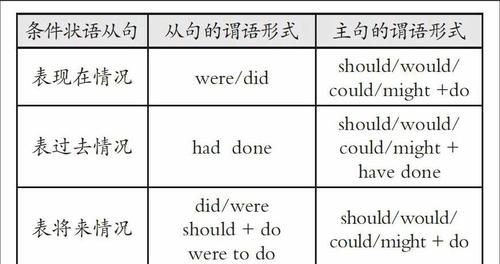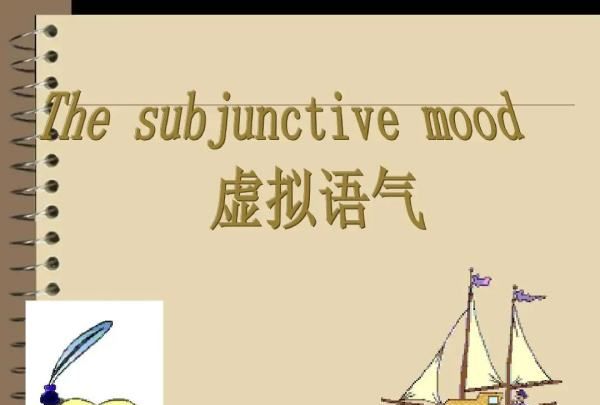本文目录
英语虚拟语气的表达方式
1.用介词或介词短语表示虚拟条件
常用的介词或介词短语主要有without(没有),but for(要不是),in the absence of(如果没有)或were it not for(要是没有),but that(假设……不)等。例如:
Without electricity, there would not be modern industry.
But for the leadership of the Party, we couldn’t live such a happy life.
In the absence of gravity, there would be no air around the earth.
Example:
Without gravity, we ______ able to walk.
a. were b. should be c. can be d. should not be
Were it not for the atmosphere, the stars ______ shining at any time in the day.
a. be seen b. can be seen c. could be seen d. could have been seen
2.用动词不定式表示虚拟条件
It would be a shame to stop our work half-way.
It would take about 125 million of molecules of water to form a row an inch long.
如果要排成一寸长就需要大约一亿二千五百万个水分子。
Example:
It ______ better to think independently.
a. goes b. looks c. would be d. shall be
3. 通过上下文表示虚拟条件
常用的连接词有or, otherwise, but等。例如:
I was very busy yesterday. Otherwise I would have come to see you.
The worn parts have been replaced at the proper time, or a damage might have happened.
磨损的部件及时更换了,否则就会发生破坏。
Example:
He went on foot, but he ______ by bus.
a. might go b. should be gone c. could have gone d. ought have gone
The traffic was very heavy; otherwise I ______ here 50 minutes sooner.
a. would have been b. would be c. should be d. had been
4.虚拟语气用在...would(或had)rather(或would just as soon)+ 从句的句式中,表示与事实相反的愿望。从句谓语动词要用过去式。例如:
I would rather you stayed here.
I would rather that you didn’t do anything.
I’d just as soon you didn’t go there.
Example:
I’d just as soon ______ those important papers with you.
a. that you won’t take b. your not taking c. please don’t you take d. you didn’t take
I’d rather you ______ anything about it for the time being.
a. do b. didn’t do c. don’t d. didn’t
5.虚拟语气用在...had hoped that...句型中,表示过去未实现的愿望,意为“原本希望...”,从句谓语用would + 原形动词。例如:
I had hoped that she would answer my letter.
We had hoped that you would change your mind.
His father had hoped that he would be a scientist.
Example:
Tom’s father had hoped that he ______ into business with him.
a. would go b. would have gone c. went d. had gone
6.虚拟语气用在had better, had best, had rather, would sooner, would rather, would have句型
中,后接原形动词。例如:
You had better close the window.
I would rather stay at home.
You had best leave her alone.
Would you have me tell her a lie?
If you don’t mind, I’d rather not see the play.
I had rather put the books on the desk.
Liu Hu Lan would sooner die than surrender.
Example:
I ______ do that if I were given the choice.
a. would rather not b. rather not c. do not rather d. would not rather
“I haven’t felt well for a week.” “You ______ see a doctor.”
a. had ought to b. had better c. should have to d. had rather
______ do it myself than try to persuade a stubborn fellow like you.
a. I’d rather b. I’d better c. I rather d. I’d like

英语虚拟语气笔记整理
虚拟语气是英语语法考试中的重点,那么你掌握了吗?下面是我为你整理的英语虚拟语气的语法的相关资料,希望大家喜欢!
英语虚拟语气的语法归纳
虚拟语气(Subjunctive Mood)这一语法项目是各类英语考试中心测试的重点之一。虚拟语气是一种特殊的动词形式,用来表示说话人所说的话并不是事实,而是一种假设、愿望、怀疑或推测。
Ⅰ用以表示虚拟条件的虚拟语气
⒈ 用if条件从句表示的虚拟条件,是虚拟条件最普通的方式。
① 虚拟现在时表示与现在事实相反的假设,其if 从句的谓语形式用动词的过去式(be 一般用were),主句用would/ should/ could/ might +动词原形,例如:If I were in your position I would marry her.
② 虚拟过去时是表示与过去事实相反的假设,if 从句的谓语形式用过去完成时即had+过去分词,主句用would / should / could / might + have +过去分词,例如:If it had not rained so hard yesterday we could have played tennis.
③ 大多数的虚拟条件句属于上面三种情况的一种,但并不排除存在条件和后果中,一个和现在情况相反,另一个和过去情况相反,例如:If you had followed what the doctor said, you would not have been so painful now.这个句子在高中出现频率颇高。
④ 但是,如果后果用了虚拟语气,而条件却用陈述语气,这种用法是错的。
⒉ 除了表示虚假条件外,if从句还可以表示对将来的推测,由于是将来还没有发生的,所以谈不上是真实的还是虚假的,只能说这个事情发生的可能性有多大。一般情况下,可以用陈述语气的if从句来表示对一个未来事实的推测,这个事实是完全可能发生的。If从句的谓语形式用一般过去式或用were to / should +动词原形,主句用would / should /could/ might +动词原形,例如:Jean doesn't want to work right away because she thinks that if she were to get a job she probably wouldn't be able to see her friends very often.(1996年1月四级第44题)
⒊ 有时可以把含有助动词、情态动词、be或have的虚拟条件句中的连词if 省去,而将had , should, were 等词提到主语之前,即用倒装结构,这时候,如果出现not等否定词,否定词需放在主语后面。这种结构在口语中很少使用,但频频出现在各类考试中出现,例如:If it had not rained so hard yesterday we could have played tennis.→Had it not rained so hard yesterday, we could have played tennis.
⒋ 大多数的虚拟条件通过上面所讲的两种方法表达,但在个别句子中也可以通过介词without和介词短语but for表达,副词otherwise等表达出来。例如:We didn't know his telephone number; otherwise we would have telephoned him.(1995年6月四级第46题)值得注意的是,包含but for的句子,谓语动词必定要用虚拟形式,但包含without等短语的句子,谓语动词未必一定要用虚拟语气。
⒌ 有时虚拟条件不是明确地表达出来,而在蕴含在用but引导的从句里,于是便出现了有谓语动词是虚拟语气的主句加上谓语动词是陈述语气的but从句构成的并列复合句,例如I would have hung you but the telephone was out of order.在这样的句子里,如果主句没有用虚拟语气,或者从句用了虚拟语气,都是错的。
Ⅱ用在宾语从句中的虚拟语气
⒈ 在表示愿望的动词wish后的宾语从句中,需用虚拟语气。(wish后的that 常省略),根据主句时态,从句谓语时态相应退后一位,例如:How she wished his family could go with him.
⒉ 在具有愿望、请求、建议、命令等主观意愿的动词(desire, demand, advice, insist, require, suggest, propose, order, recommend, decide …) 后的宾语从句中需用虚拟语气。谓语动词用(should) +动词原形。值得注意的是,如果宾语从句的动词是否定的,否定词not的位置应在动词之前,而不是动词之后。例如:The head nurse insisted that the patient not be move.另外,如suggest表达“暗示”,insist表示“坚持某种说法”时,后面的从句不用虚拟语气,例如:Her pale face suggests that she is ill.或He insisted that he did not kill the boy.
除此之外,上述动词也要求用虚拟式
① 在It is+上述动词的过去分词,其后所跟的主语从句中,如It is suggested that pupils wear school uniforms.
② 在上述动词相应的名词形式作主语+连系动词,其后的表语从句中,例如His suggestion was that classed be re-scheduled.
③ 在对上述动词相应的名词进行解释的同位语从句中,如:The workers raised the demand that their pay be increased to cope with the inflation.
⒊ would (had)rather , would sooner也用来表达主观愿望,它们之后的宾语从句中需用虚拟语气。谓语动词用过去式表示现在或将来,用过去完成式表示与过去事实相反,例如:I would rather he went right now.
Ⅲ其他形式的虚拟语气
⒈ it is +necessary等形容词后,that主语从句中虚拟形式使用,这类形容词包括necessary, important, essential, imperative, urgent, preferable, vital, advisable等,例如It is necessary that you listen to the teacher carefully.或者It is essential that you be able to pronounce every single word correctly.
⒉ 在It's (high/about) time 之后的定语从句中需用虚拟语气。谓语动词用过去式,例如It is high time that you went to school
⒊ 虚拟语气在as if / as though 引导的方式状语从句中的应用(谓语动词形式与wish后的宾语从句基本相同)表示与现在事实相反或对现在情况有怀疑,谓语动词用过去式。例如:He felt as if he alone were responsible for what had happened. 表示过去想象中的动作或情况,谓语动词用过去完成式。
⒋ 在lest 引导的状语从句中,谓语动词多用虚拟语气,(should )+ 动词原形。例如: The mad man was put in the soft-padded cell lest he injure himself.(1998年1月四级第38题)
⒌ 在if only 引起的感叹句中需用虚拟语气。谓语动词用过去式或过去完成式。例如: Look at the terrible situation I am in! if only I had followed your advice.
虚拟语气的时态
一、过去式:
if 从句:had done
英语语法:虚拟语气的时态
主句:情态动词(would,could,might,should)+have done
英语语法:虚拟语气的时态
二、现在式:
if 从句:did/were
英语语法:虚拟语气的时态
主句:情态动词(would,could,might,should)+do
英语语法:虚拟语气的时态
三、将来时:
if 从句:①should/shall do
②were to do
③did/were
英语语法:虚拟语气的时态
6
主句:情态动词(would,could,might,should)+do
虚拟语气在条件从句中的用法
(一)形式 注:
1.在从句中,be动词多用were的形式。在口语中,如果主语是第一、第三人称单数的话,be动词可用was,但人们总是说:If I were you...
2.主句中的谓语可以由would,should,could和 might这四个不同的情态动词来构成。
3.与将来事实相反的条件从句中,谓语有三种不同的形式:过去式、were +to do或should +do。 例句1:If I were you,I would study hard.我要是你的话,我就会好好学习。(与现在事实相反) 例句2:If I had studied hard,I would have passed CET-6 last semester.我要是早就好好学习的话,那么我上个学期就通过六级考试了。(与过去事实相反) 例句3:If Iwere to pass CET-6,I would treat you to dinner at KFC.我要是过了六级考试,就请你去吃肯德基。(与将来事实相反)
(二)省略/倒装 如果在虚拟从句中包含有一个助动词、情态动词、动词be或have,则可把if省略,把上类动词提到主语之前,使用倒装语序。
例句4:Had it not been for the PLA,we wouldn’t have been able to beat the flood.4要不是人民解放军,我们是无法战胜洪水的。
例句5:Were he here now,he would certainly help me.5他要是在这里肯定会帮我的忙。 注4:例句4中的从句部分出现了否定词not,如果把该句还原成正常语序,应该是: If it hadn’t been for the PLA,we wouldn’t have been able to beat the flood.
但是一旦句子发生了省略,就必须把hadn’t分开,否定词not还原,放在主语之后,不可写成Hadn’t it b

虚拟语气英语怎么说
虚拟语气是一种特殊的动词形式,用来表示说话人所说的话不是事实,而是一种假设、愿望、怀疑、建议、猜测、可能或纯粹的空想等,通常由 if 引导的状语从句与主句构成。

五种基本句型:
1、纯条件虚拟语气
(1) 句型if + 主语 + 一般现在时动词,主语 + will/may/can/shall/must/ought to/should + 原型动词。例如:If you make a mistake, you should admit it. 假如你犯了错,应该承认。
(2) 表纯条件结构的副词连词不只 if 一种,once(一旦 = as soon as)、when(当)、unless(除非)等连词也可构成条件句,用法与 if 相同,即条件句使用一般现在时,主句使用一般将来时。例如:Once/If you make a mistake, I will punish you. 如果你犯错了,我会处罚你。

2、与现在事实相反的虚拟语气
If + 主语 + 一般过去时动词,主语 + would/could/might/ought to/should + 原型动词注意,if 句子中若有 be 动词,一律为 were,而非 was。例如:If I were rich, I would buy my parents a villa. 如果我有钱会买别墅给我父母(我现在没钱)。
3、与过去事实相反的虚拟语气
If + 主语 + had + 过去分词, 主语 + would/could/might/ought to/should + have + 过去分词。例如:If he had been here yesterday, I would have seen him.如果昨天他在这儿,我就能看到他(他昨天不在这儿)。
4、与将来状况相反的虚拟语气
使用本虚拟语气时, if 从句一定要加助动词 should, 译成“万一”If + 主语 + should + 原形动词, 主语 + would/could/might/ought to/should + 原型动词。例如:The sky is blue. If it should rain, the picnic would be cancelled. 天空一片湛蓝,万一下雨,野餐将取消。
5、与真理相反的虚拟语气
If + 主语 + were to + 原形动词, 主语 + would/could/might/ought to/should + 原型动词。例如:If the sun were to rise in the west, the sunflower would be scared to death. 太阳从西方升起,向日葵会吓死。
英语虚拟语气是什么意思
英语虚拟语气是表示动作或状态不是客观存在的事实,而是说话人的主观愿望、假设或推测等。
如果假设的情况是有可能发生的,就是真实条件句。在这种真实条件句中的谓语用陈述语气。如:If it doesn't rain tomorrow, we will go to the park。如果明天不下雨,我们就去公园。

英语虚拟语气语法总结如下:
1、 If 条件句中谓语动词的虚拟结构是在原来陈述语气所用时态的基础上倒退一个时态(对将来虚拟的were to do/should do例外)。
2、虚式语气在条件句中的使用:条件句有真实条件句和虚拟条件句。当主句不需要虚拟语气时,真实条件句所表示的假设是可能的,而虚拟条件句则表示与事实相反或不太可能发生的假设,此时使用虚拟语气。
3、在表示与将来事实相反的条件句中,只能用should,而不能用would,could和might 等。
以上就是关于虚拟语气英文表达,英语虚拟语气的表达方式的全部内容,以及虚拟语气英文表达 的相关内容,希望能够帮到您。

